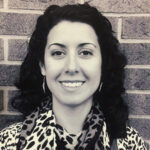Flesh, Tongue, Yaya Yao’s first collection of poetry, brings you to a crossroads where you have a desire for belonging in the place you feel is home, but must first understand why your parents’ own upbringing makes finding acceptance such a struggle.
It is another example of how the need to reconcile with the past is felt across cultures and spans generations.
Yao’s collection recounts her adolescence between paradigms – past and present; tradition and modernity; a new home and the one left behind.
These are the fragmentations many children of immigrant parents experience, especially when they grow up in a culture that is markedly different from the one of their parents.
Yao’s poems, 44 in total, tell of the need for a continuous narrative and context for one’s place in the world. Her words, which sometimes appear scattered on the page and non-linear in form, symbolize this process of tying different histories together.
Knowledge of our past, and the significance it holds for our parents, forces us to embrace and hold on to these fragments of our ancestry as we build our own identities.
Language, history, family
Yao dedicated Flesh, Tongue to her father, Eugene Yong-Ging Yao, “who said he never got my poems.” Still, she made an effort to “get” him and her mother by learning their languages and sharing them in her writing.
Her poetry mixes Cantonese, Mandarin, Hokkien, and Shanghainese – sometimes translating these dialects into English to reveal similarities and contrasts.
To someone unfamiliar with these languages, they demonstrate that one’s identity can be made both richer and more complicated with their knowledge. The harsh-sounding words on the page force us to appreciate the challenges of learning a language that sounds and even feels different on our tongues from the one in which we were raised.
Chinese culture’s emphasis on ancestors and honour also emanates from Yao’s retellings. They express a definition of family that goes beyond a biological, skin-deep bond to something much deeper, embedded in historical psyche.
There is also a reference to the Tiananmen Square protests in 1989. Knowledge of our past, and the significance it holds for our parents, forces us to embrace and hold on to these fragments of our ancestry as we build our own identities.
Carrying these narratives is both our burden and our blessing.
Yao was born and raised in the Parkdale and Little Portugal neighbourhoods of Toronto. These communities are built on many histories that have been uprooted from around the world and will continue to change as new narratives take form.
She tells her story in a unique voice, yet the nostalgia created by her images is a familiar sensation to anyone who has grappled with understanding where they came from and whether they ended up in the right place.
Dundas Street evokes memories
Yao’s “living room over dundas” symbolizes many of the homes immigrants have built for themselves in Canada’s bustling metropolises.
For me, Dundas Street brings back images of my earliest memories, spent with my Iranian grandparents in Dixie, a neighbourhood in southeast Mississauga. I knew at the time that, when we walked outside in one direction, we would arrive at the park where Grandfather would push me on the swing.
When we went in the other direction, we would cross a busy street to get to Chinatown, where I would skip from stone to stone in the pond around the imperially decorated gazebo.
Their children – like Yao, and like me – grew up learning that their paths do not start and stop outside their home, but cross continents and oceans.
The street was Dundas, which I now know goes a long way beyond our old neighbourhood and is a meeting place for people from even further away.
The Afghani bakery, the Latino pharmacy, the Indian restaurant – they all hold the histories of many immigrants who came to Canada and undoubtedly struggled to find their footing.
Like my grandparents and parents, they felt the strain of trying to fit the familiar pieces of their ancestral homeland into the strange spaces of a new home, many miles away.
Their children – like Yao, and like me – grew up learning that their paths do not start and stop outside their home, but cross continents and oceans. Carrying these narratives is both our burden and our blessing.
Reflecting on one’s past can induce grieving for what is lost, but also the recognition that there are parts of ourselves we can regain. Yao’s memories – built with colours, feelings and scents – not only tell of desperate times, but also of times when uncertainty was less destabilizing, before it beckoned us to question our place within our families, in society and in history.
“meet your younger
eyes, ones that never
doubt that you, now
are doing what you
came
to do.”
Rosanna Haroutounian is a freelance writer and the assignment editor at New Canadian Media. She studied journalism and political science at Carleton University and now splits her time between Quebec City and Peterborough, ON.





